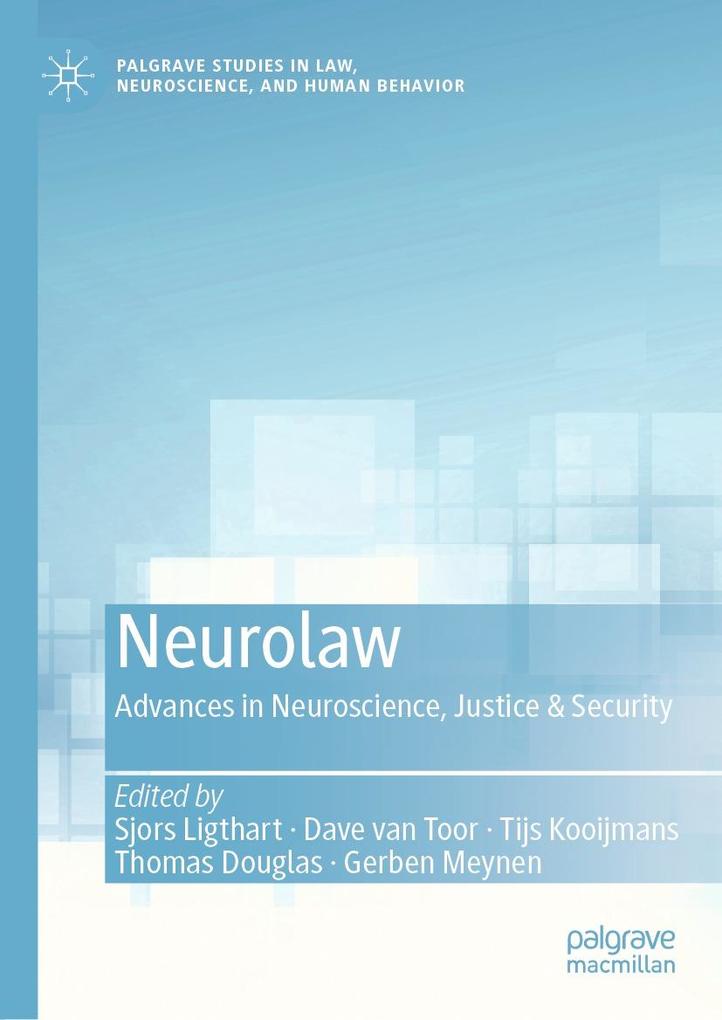
Sofort lieferbar (Download)
This edited book provides an in-depth examination of the implications of neuroscience for the criminal justice system. It draws together experts from across law, neuroscience, medicine, psychology, criminology and ethics, and offers an important contribution to current debates at the intersection of these fields. The volume examines how neuroscience might contribute to fairer and more effective criminal justice systems, and how neuroscientific insights and information can be integrated into criminal law in a way that respects fundamental rights and moral values.
The book's first part approaches these questions from a legal perspective, followed by ethical accounts in part two. The authors address a wide range of topics and approaches: some are more theoretical, like those regarding the foundations of punishment; others are more practical, like those concerning the use of brain scans in the courtroom. Together, they illustrate the thoroughly interdisciplinary nature of the debate, inwhich science, law and ethics are closely intertwined. This book will appeal in particular to students and scholars of law, neuroscience, criminology, socio-legal studies and philosophy.
Chapter 8 is available open access under a Creative Commons Attribution 4.0 International License via link.springer.com.
Sjors Ligthart is PhD candidate in Criminal Law at Tilburg University, the Netherlands.
Dave van Toor is Assistant Professor of Criminal Law at Utrecht University, the Netherlands.
Tijs Kooijmans is Professor of Criminal Law at Tilburg University, the Netherlands.
Thomas Douglas is Professor of Applied Philosophy and Director of Research and Development at the Oxford Uehiro Centre of Practical Ethics, Faculty of Philosophy, and Senior Research Fellow at Jesus College, University of Oxford, UK.
Gerben Meynen is Professor of Forensic Psychiatry at Utrecht University and Professor of Ethics and Psychiatry at Vrije Universiteit Amsterdam, the Netherlands.
Inhaltsverzeichnis
1. Possibilities and limitations of neuroscience in the legal process.- 2. euroscience and dangerousness evaluations: The effect of neuroscience evidence on Judges. Findings from a focus group study.- 3. The need for a partial defence of diminished capacity, and the potential role of the cognitive sciences in helping frame that defence.- 4. Coercion and control and excusing murder?.- 5. Reading the sleeping mind: Empirical and legal considerations.- 6. `Brain-reading in criminal justice and forensic psychiatry: Towards an integrative legal-ethical approach.- 7. A biopsychosocial approach to idiopathic versus acquired pedophilia: what do we know and how do we proceed legally and ethically?.- 8. Three rationales for a legal right to mental integrity.- 9. Neurointerventions and crime prevention: On ideal and non-ideal considerations.- 10. Neuroscience and the moral enhancement of offenders: The exceptionally good `brain as a thought experiment.- 11. Retributivism, consequentialism, and the role of science.
Produktdetails
Erscheinungsdatum
05. Mai 2021
Sprache
englisch
Auflage
1st ed. 2021
Seitenanzahl
278
Dateigröße
3,63 MB
Reihe
Palgrave Studies in Law, Neuroscience, and Human Behavior
Herausgegeben von
Sjors Ligthart, Dave van Toor, Tijs Kooijmans, Thomas Douglas, Gerben Meynen
Verlag/Hersteller
Kopierschutz
mit Wasserzeichen versehen
Produktart
EBOOK
Dateiformat
PDF
ISBN
9783030692773
Entdecken Sie mehr
Bewertungen
0 Bewertungen
Es wurden noch keine Bewertungen abgegeben. Schreiben Sie die erste Bewertung zu "Neurolaw" und helfen Sie damit anderen bei der Kaufentscheidung.









